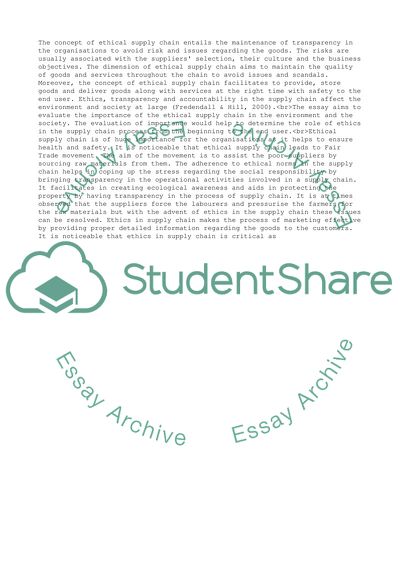Cite this document
(Debating the importance of ethical supply chains Assignment, n.d.)
Debating the importance of ethical supply chains Assignment. https://studentshare.org/management/1808947-debating-the-importance-of-ethical-supply-chains
Debating the importance of ethical supply chains Assignment. https://studentshare.org/management/1808947-debating-the-importance-of-ethical-supply-chains
(Debating the Importance of Ethical Supply Chains Assignment)
Debating the Importance of Ethical Supply Chains Assignment. https://studentshare.org/management/1808947-debating-the-importance-of-ethical-supply-chains.
Debating the Importance of Ethical Supply Chains Assignment. https://studentshare.org/management/1808947-debating-the-importance-of-ethical-supply-chains.
“Debating the Importance of Ethical Supply Chains Assignment”. https://studentshare.org/management/1808947-debating-the-importance-of-ethical-supply-chains.


